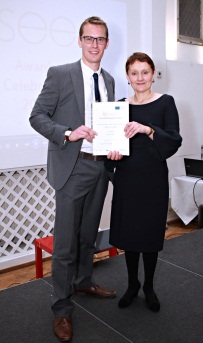Tip for Teachers
- Applying to Oxbridge for a state school student: my top tips for teachers advising students (and for students themselves!)
- A Level Results, University and Clearing – our top tips for your students
- What is university fair access and widening participation?
- How teachers can support special educational needs ("SEN") students in applying to university
- What is a university open day?
- What is a university taster day?
- Students – What is a university summer school?
- Building lasting links with universities: A how to guide
- How to prepare your students when thinking about university
- Open Days: a university perspective
- If students ask you ‘Why should I go on to university?'
- How to support students making Pre and post-16 option choices
- UCAS Applications and Personal Statements Advice
- University Accommodation Explained
- University widening participation: 3 key facts you and your students need to know
- Recent changes in the Higher Education landscape explained
- UCAS Advice: What do universities look for in a student?
- UCAS Application Advice: The Perils and pitfalls of the UCAS application
- University Tuition Fees & Student Finance: Key facts for teachers
- Reaping the Rewards: The Sharp End of Collaboration: National Networks for Collaborative Outreach
- How students can choose the university and the course that is right for them
- Building Links with Universities: Top five tips
- University events resource for teachers highly commended at Business Innovation Awards
- University Events Explained for Students
- Access and Widening Participation Introduction for teachers
Applying to Oxbridge for a state school student: my top tips for teachers advising students (and for students themselves!)

Guest blog from ThatOxfordGirl
For many prospective applicants, Oxbridge can seem intimidating and it is no doubt more intimidating when you are up against pupils who have been training for Oxbridge their entire life. I came from a state school and achieved my childhood dream of attending Oxford University. My time spent reading English Literature and Language at Jesus College will stay with me my entire life. I loved every moment of my Oxford experience and I am keen to demystify the application process and give students an insight into student life.
Here are a few of my tips to get you started:
Give it a go
- So many pupils have brilliant grades but do not believe that they could be ‘Oxbridge material’. Pupils need to be reminded that this is only one choice on their UCAS form, so they really have nothing to lose.
Attend the Oxford University Open Days
- These are a fantastic way for students to decide whether Oxford life is for them. They can look around the colleges, visit the faculties and attend talks.
Personal Statement
- Ensure that their personal statements doesn’t open with a boring statement such as ‘I love English…’
- Mine opened with ‘On 29th of February a brutal murder was committed…’ I then went onto discuss how Robert Browning’s poem ‘Porphyria’s Lover’ about a cold-blooded murder sparked my interest in poetry. My tutors at Oxford later reflected that this stood out because it was different.
Entrance Exams
- Pupils need to get used to facing unseen material. Suggest that they print off articles, journal entries, maths equations, poetry, newspaper articles, graphs, basically anything related to their subject and get them to annotate them and think of the key points and how they could relate them to other areas of their subject.
- Familiarity with the papers will definitely help so ensure that they check out the past papers.

Work Submission
- Ensure that pupils hand in work which shows off their writing skills and their knowledge of their subject.
- Try to make them look at the essay from an interesting perspective, so it stands out.
- Make sure they proof read it for mistakes.
Interviews
- Interviews are always deemed the scariest part of the application process.
- Ensure that students revisit their personal statement and make sure they know everything they have written about in minute detail.
- Get them to think about why they want to study at Oxford and why they are drawn to the course. They should look up their course online and see which parts excite them.
- Encourage them to live and breathe their subject by reading outside of the school curriculum and reading new texts once they’ve handed in their personal statement.
- They should see everything as an opportunity and talk about their subject with anyone and everyone who will listen. Vocalising their thoughts will help them to form opinions.
- If you are able to offer prospective applicants a mock interview, this will be great practice.
- I had written in depth about Virginia Woolf in my personal statement but was totally panicked when the tutors focused on my brief reference to Macbeth in my interview
- Most of my interviews opened with ‘Why English at Oxford?'
- If for instance, they have learnt the Keynesian theory of economics at school, suggest that they look at economics from a different angle, for instance the more psychological side of behavioural economics
If you have pupils applying to Oxbridge, tell them to check out my website www.thatoxfordgirl.com and Instagram page thatoxfordgirl for free top tips!
A Level Results, University and Clearing – our top tips for your students
Jon Cheek, Director, UniTasterDays.com

Some of you reading this will already know your key stage 5 grades – IB results are already out and of course not everyone applies straight from school.
But if you sat A-Levels back in May and June, August 18th is going to be a pretty stressful day. Especially if you’re one of the 500,000+ who has applied to university this year.
For many August 18th will be straight forward– get your first choice grades (tick), don’t have any last minute university changes planned (tick), start in September (tick). For others, a similar chain, with the insurance choice stepping in for any missed first choice grades.
But for many, many others (as you will tell by the engaged tone and waiting periods come the day) clearing will be order of the day on August 18th. So let me help you plan a little.
Start looking at clearing choices before results day
Decisions you make about university during clearing will have a major impact on your life. You may just meet a future partner whilst at your chosen university, but are far more likely to meet life-long friends. I bumped into a stat recently which even claimed 40% of students living away from university actually go on to live in the location of the university they studied at after they graduate.
Of course, some of your careers will also be built as a direct result of degree choice. I wouldn’t get so wrapped into that though, unless your career aspirations are reliant on a specific degree choice – medicine, law etc. The majority of job adverts (68% to be precise at the last count) don't even specify a degree subject when advertising graduate level jobs.
So what happens come August 18th
Universities you apply to will find out your results before you do, to allow their decision to be communicated back to UCAS so you have the answers to make informed decisions comes results day.
If you need clearing, choice is there for you - at the start of the UCAS cycle, there were 328 institutions in the UK you could apply to, and over 40,000 courses. Well over half of them will still be available during clearing.
But clearing won’t be a new word - the buzzword in the coming weeks will be ‘clearing'. Progressively more so as we approach August. Search for "clearing" and you will see the volume of universities advertising, paying inflated prices per click on Google to benefit from the increased search demand during such a key recruitment period for them. If you are on Facebook, you will no doubt be bombarded on there too through their targeting.
See the opportunity…
I have worked at universities throughout my career, and I have seen how clearing has changed, with some of the leading universities in the UK now entering clearing. But if you know your stuff about supply and demand, you will know that can only mean a good thing for you if you are thinking of studying this year. Not because some of the best universities in the UK are now in clearing (as they may not be the best choice for you) but because you will have more choice than ever before, on location, subject and degree level to name but a few.
My advice for you as you think about results day in August, and potentially making countless calls to universities is not to panic. If you need to speak to the clearing hotlines, and potentially hundreds of members of staff working during clearing at each university, is that you will speak to some fantastic people at universities who will show a genuine interest and empathy, and be a supportive ear at the end of the phone.
I have worked at three large universities during clearing, and one consistency with them all is that their staff are really keen to help. They will reassure, calm and speak to you on your own level and merit. It won’t be a sales pitch, they will want you to make the best choice for you, and not commit to something you are not comfortable with.
University marketing may be more aggressive than it ever has been, but universities remain supportive of one another in the sector, and won't be afraid to suggest you look elsewhere if they feel it would be in your best interests.
Nerves are natural, but fear isn't. You should replace the fear and anxiety for excitement, and be surprised at the wealth of opportunity at your fingertips. Good luck!
What is university fair access and widening participation?

Guest blog by Naomi Smith, Journalism graduate and Higher Education Blogger.
Universities actively want to widen access to higher education. We want to attract the broadest range of students possible, in order to give everyone the best chance to succeed in life, regardless of background or current circumstances.
That’s why, in the academic year 2013/14, universities and colleges in the UK spent £92.6 million on outreach activities under their access agreements. Outreach is defined as activity conducted by universities and colleges with the aim of raising aspirations, awareness and attainment among young people from disadvantaged backgrounds.
For example, some universities run summer schools, such as the University of Bath’s Autism Summer School, a residential event which allows students with Autism Spectrum Disorder (ASD) to experience all facets of student life on campus.
At Birkbeck, we run a series of monthly workshops called Get Started, aimed at prospective students, which are designed to help students take their first steps towards higher education. We run through fees and funding, the benefits and challenges of studying, and the process of a writing a personal statement.
The majority of universities and colleges offer bursaries and grants to help cover the extra costs of studying. These are paid annually, do not have to be repaid, and can be received on top of any student loans or grants claimed.
Many will also offer fee waivers; these will reduce the loan that students have to pay back after they have graduated and are earning upwards of a certain amount.
While the maintenance grant will not be available for 2016 entry onwards, there is still some government funding available to disadvantaged students. This includes Childcare Grants, Adult Dependants’ Grants, the Parents’ Learning Allowance and the Disabled Students Allowance (DSA).
The DSA, for example, is intended to help towards any additional costs that a student may face because of their disability, mental health condition or specific learning disability. It is provided in addition to the regular student finance package and does not have to be repaid.
It is not affected by household income and looks at the specific needs of the individual in relation to their circumstances and their studies. In other words, students are not just given a lump sum that they can spend in any way they choose; the money will be provided to cover specific costs, such as a scribe or a dictaphone.
It’s so important that students know that aspects such as their race, class, health or gender don’t have to be obstacles on their way to or through higher education. By working with both parents and universities, teachers can take the first steps towards helping students realise their full potential in a practical and meaningful way.
University isn’t going to be right for everyone but it’s important to make sure that everyone gets the chance to choose.
How teachers can support special educational needs ("SEN") students in applying to university

Guest blog by Naomi Smith, Journalism graduate and Higher Education Blogger.
Teachers and careers advisors have a mandate to assist and encourage all their students in making the best choices when choosing and applying to university. However, many students with special educational needs are often overlooked in this process as they are simply not expected to succeed at university level for a multitude of different reasons.
However, this doesn’t have to be the case as many universities and organisations, including the government, now provide financial, pastoral and other support for SEN students. Here’s how to best help them with their decision in five easy bullet points:
1. The National Autistic Society provides a wealth of information for prospective students with autistic spectrum disorder (ASD) as does the Aspergers Syndrome Foundation .
2. Many students with ASD find it hard to cope with a sudden onslaught of major changes and find it easier to stay at home while studying at university. However, if they choose to live away from home, they should be encouraged to consider two questions: Do they want to be able to come home regularly? Do they want to live in a city or a more rural campus location?
3. If they are considering living in halls with other students, then it is important to think about the social pressures inherent in such an arrangement and to investigate the available support systems already in place. They may prefer to rent a room in a landlord's house, with a family. most student unions have a list of approved landlords.
4. Another important issue is whether or not to disclose their disability as many worry that it will lead to discrimination from lecturers and support staff alike. However, the Equality Act 2010 makes it unlawful for any university or college to discriminate against students with disabilities. In fact, disclosing a disability can be vital in making sure that students are treated fairly and given the help that they need; universities are required to make 'reasonable adjustments' to ensure that no one student is at a significant disadvantage.
That said, there is no legal requirement for students to disclose their disability and they should not be made to feel pressured into doing so. Disability Rights UK provides a handy FAQ to tell you more about the help available should a student choose to disclose their disability on their UCAS application.
5. Finally, students may be eligible for the Disabled Students Allowance. This is a non-means tested grant designed to help students with extra costs which are a direct result of their disability. The amount awarded will be based on the needs of the individual student. It is not paid directly to the student but is used by the institution to help with the purchase of specialized equipment, transport, non-medical assistants (e.g. scribes, etc) or other costs, such as photocopying.
University isn't right for everyone, special educational needs or not. The decision to undertake university study, take on an apprenticeship or go straight into work belongs to the individual student. It is imperative that they be presented with all those opportunities and in-depth information to allow them to make an informed decision as to the right path for them.
What is a university open day?
Please pass this article to students thinking about university.

Guest blog by Naomi Smith, Journalism graduate and Higher Education Blogger.
The best way to find out whether a university is right for you is to see it for yourself. An open day gives you the chance to do just that.
Like the universities, every open day will be different. There’s no set format for how these things work but normally you’ll meet staff and students alike, find out about their facilities and accommodation, and get a chance to check out the campus.
For example, the University of Kent holds open days at both its Canterbury and Medway campuses. They offer talks on a range of useful topics, such as student life, the UCAS process and accommodation. There are also demonstrations, sample lectures and workshops, delivered by the various academic schools.
Some universities will provide accommodation for open days, giving you the chance to experience a night in halls and to get a feel for what university life is really like.
The information that you learn at an open day is the stuff that you won’t find in the prospectus. It’s the only way to really get a sense of what it would be like to be a student of that university. Campus life is very different to home and school, so you need to be as prepared as you can be.
The University of Manchester holds a Student Experience Exhibition to give you what they call the ‘inside story on the full University of Manchester student experience’. Essentially, this is where you pick up information on vital student services, such as careers, finance, sport, the library and more.
A big part of campus life is societies and activities. Universities will often have societies showcases, where you can check out who they are and what they do.
The majority of universities don’t require you to book for open days. However, if you can, I would, just in case. It’s also a good idea to check out the programme and timetable, just in case some individual events do require booking.
A lot of universities will hold both pre- and post-offer open days. These do pretty much what they say on the tin. Pre-offer open days are for those who are considering applying, while post-offer open days are for those who have already been given an offer and are deciding whether or not to accept.
While the programmes for both may be quite similar, it is important that you try to attend both in order to give yourself the best opportunity possible to make the decision that’s right for you.
What is a university taster day?
Please pass this article to students thinking about university.

Guest blog by Naomi Smith, Journalism graduate and Higher Education Blogger.
University taster days are very similar to open days. However, they often focus on a specific course, subject or department, rather than presenting an overview of the entire university experience. They can take many forms but are all designed to give prospective students a feel for what university study is really like.
Taster days are a fantastic way to find out if university is the right choice for you. It’s important to explore all of your options before making a decision and experiencing those options first-hand can be a big help.
University isn’t right for everyone. There are many other options to choose from, including going straight into work or taking on an apprenticeship. Other alternative options include evening study, offered by Birkbeck College, part of the University of London, so that you can combine real workplace experience during the day with studying at night.
Taster days are also particularly useful if you’re stuck choosing between a few different subjects or are unsure whether you want to commit to three (or four) years studying a subject you’ve already picked out.
The perfect course will suit your individual interests and abilities, whilst enabling you to develop your existing knowledge and gain new skills. Lectures and workshops taught by actual academics will give you first-hand experience of whether your chosen subject, course and/or university ticks all of those boxes.
Liverpool John Moores University offers subject insight days where you can sign up to sample one of 60 undergraduate programmes, taking part in a lecture, practical workshop and/or laboratory session. You can also talk to both staff and students, and check out the teaching facilities.
Other taster days focus on a single subject, giving you the chance to experience the academic side of student life for a day. This often includes sample lectures, application and selection day workshops, and the chance to develop practical skills in your chosen subject area.
Some taster days are aimed at specific types of student, such as international students or those with disabilities. The University of Manchester holds a Visit Day for Disabled Learners, specifically for students under 16 with autistic spectrum disorder (ASD). This includes information about support for disabled students, the Disabled Students’ Allowance and more general financial support available.
Many universities also have taster courses, which run for a longer period of time and allow you to experience the social side of student life as well as the academic side. Again, this can help you decide whether the course or university is really right for you.
You can also highlight that you went to the taster day in your personal statement on your UCAS application, to demonstrate your commitment to the subject and to university study. This shows admissions tutors that you have thought about what you want to study and are proactive in finding information to make the right choice for you.
Students – What is a university summer school?

Please pass this article to students thinking about university.
Guest blog by Naomi Smith, Journalism graduate and Higher Education Blogger
Some universities hold residential summer schools during the school holidays. They can take many forms but are usually designed to introduce prospective undergraduate students to university life.
For example, Kings College London offers a Pre-University Summer School programme for high school students in their final two years of study (years 12 and 13). This intensive two week programme gives you the opportunity to study a subject at undergraduate level and to prepare for university study.
The programme combines academic classes, excursions, university preparation advice and wider skills sessions, alongside a varied social programme.
Not all summer schools are as long, however; many only last for one or two days. Staffordshire University run a three-day, two-night residential course known as UniLife 2016. The name makes it sound a bit like a weird festival but in reality, this is a short but action-packed summer school, designed to show you what student life is really all about.
Students stay in halls of residence on campus, take part in subject workshops, and get a chance to explore (and play with) the state-of-the-art facilities and equipment.
Other summer schools focus on the academic side of things, concentrating on just one subject. These are good if you’re looking to get ahead in your studies or are simply curious about a specific topic and want to learn more.
Some are short, three day affairs, such as those held by Liverpool John Moores University. These are aimed at year 12 & 13s, and are completely free. Covering subjects such as architecture, engineering, geography and even dance, they combine academic study during the day with a packed social calendar in the evenings.
Others, such as Cambridge University’s Interdisciplinary Summer Programme, are more intense and suited to current undergraduates or even graduates who are interested in exploring subjects beyond their current/existing degree.
Spread out over three, short ‘terms’ from July to August, they cover a wide range of subjects. This includes philosophy, economics, international politics and relations, literature, history, archaeology, art history and history of science.
Some summer schools cater to specific types of student. For example, UCL (University College London) and Exeter University both run an international summer school. UCL’s offering is part of their study abroad programme and runs during summer, divided into two blocks, each spanning three weeks.
A wide range of modules are on offer, taught by academics who are ‘at the cutting edge of research in their respective fields’. Accommodation is also offered, along with a varied programme of social events.
Building lasting links with universities: A how to guide
Guest blog by Sophie Craven, Schools and Colleges Liaison Service, The University of Huddersfield
Most schools already have existing links with universities, but have you ever wondered if you are getting the most from these relationships? As busy professionals in schools, there may be opportunities that universities can provide you with, which you weren’t even aware of.
Example activities

Below are some of the activities on offer which range from one hour to a one-year programme, with some taking place on university campuses and others in schools.
Higher education preparation - a range of non-subject specific HE preparation activities covering themes such as how to choose a course, student finance and writing personal statements.
Subject focused activities – including masterclasses, subject tasters, undergraduate level modules and lectures to broaden students’ horizons to new subject areas such as engineering and architecture. Many universities can provide enhancement activities for sixth form programmes and some also provide support for the EPQ.
Skills development – non-subject specific activities designed to develop the skills required to succeed in HE including research methods and academic writing.
Targeted activities – be aware that some activities may be targeted at specific groups including primary, pre-16, post-16, adult learners, BME, females, more able, white working-class boys and care-leavers, and could include subject tasters, summer schools, and mentoring and reading schemes.
Services for school staff
In addition to activities for young people, universities may be able to offer a range of opportunities for school staff including partner school schemes, CPD programmes for subject specialists and IAG advisers, and support for school leadership through governor programmes and leadership mentoring schemes.
Volunteers in schools
Schools can take advantage of the fact that many university students seek volunteering experience as part of their course or via the Students’ Union. Such experiences may include assisting in the classroom or working on a specific project with children such as art, drama, music or the environment.
Ten tips for forging lasting links with universities
1. Visit university websites, as many events and activities will be publicised there already. If you have a specific request make contact with the education liaison team and for regular updates request to be added to their events mailing list.
2. Even for subject specific requests, contact the education liaison team who are best placed to make internal links with academic staff on your behalf.
3. Don’t be afraid to request bespoke activities but do be aware that universities have their own priorities too. This might be about working with a certain target group for widening participation purposes or working within a certain geographical area.
4. Speak to your Head of Sixth Form and Heads of Department – your school may already have an established relationship with a university that you were not aware of.
5. Consider approaching universities as a cluster of schools. Your students will benefit from this approach by working on activities with young people from other schools.
6. When making requests, be clear about your requirements from the outset, including theme, objectives, dates and numbers.
7. Don’t just limit your requests to student based activity. Consider how universities can work with you and your colleagues to support CPD.
8. Ensure activity is developed as part of an ongoing programme of provision and not as a one-off or bolt on. Use activity to build upon, consolidate and enhance work going on in school so that young people appreciate and understand the value of the experience.
9. Make sure your requests are reasonable and your expectations are realistic.
10. Develop relationships with a range of universities so that your learners have experiences over a number of years that enables progression and avoids repetition.
How to prepare your students when thinking about university

Your students have a wealth of information and university activities waiting for them. It’s now important that they have the right guidance in choosing which are the most relevant to their questions about moving on to higher-level study.
Here, Francesca Carey from Brunel University London provides her top tips on how you can help your students:
1. Approach your local universities about their outreach events, and go to UniTasterDays.com to see the sort of activities HE institutions are promoting.
2. Encourage your students to make the best use of university Open Days and Taster Days, speaking with university staff first hand and seeing if they feel the institution is the right ‘fit’ for them.
3. Why not invite universities to come to you to showcase their portfolio of courses? Many universities will be happy to attend a HE Fair at your institution or provide a presentation to students and parents.
4. Incorporate student-life activities into your programme of events, so you can broaden your students’ knowledge and interest in higher education.
5. Encourage your students to make good use of university social media, videos and podcasts to keep up to date with the latest news and developments from their chosen institutions.
6. Suggest that they attend UCAS exhibitions wherever possible.
7. In fact, encourage early engagement with the UCAS application process as it’s never too early for them to start researching courses/universities and to begin formulating an action plan - it builds their self-confidence in decision-making
8. Make your students aware of the breadth of advice and guidance available to them on the UCAS website: there are lots of great tips to help them along the way.
9. Get the support of your students’ parents during the application process. Parent evenings at your school/college are a great way of raising their own awareness of higher education, ensuring they have all the relevant information so they can be involved in their child’s decision-making.
Open Days: a university perspective
Terry Hall worked in the Marketing and Communications department of a large Midlands university. Here, he shares his thoughts on the true value of Open Days.

Open Days were a real eye-opener. My department used to look after the welcome desks where students and their families would register their attendance at the open day, get a bag of goodies and a guide for the day, and ask their first questions.
Halfway through a chat with a family from Ipswich at about 9.00am (they must have got up at about 4.00am to be there), I realised why the work I was doing mattered. Here were people looking for a future: a young girl about to face a new life, a mum and dad about to say goodbye to their daughter for three years, a family hoping that our university was the best place for a good education. It was humbling. I remember others.
A gentleman from southern Europe approached me with a cheque written out for all three years of his daughter’s course. They both looked exhausted and a bit lost. I took them straight to the finance department for the safety of his money, and to the refectory for a complimentary meal.
One young lad and his dad turned up at 8.30am, having travelled overnight from Ireland because of weather problems with ferry crossings. The open day wasn’t due to start until 10.00. We gave them their own personal tour of the university.
One father asked me at the welcome desk to tell him why he should entertain the idea of sending his daughter to our university. I felt the desk around me go quiet. I took a deep breath and told him my own experiences as a new student there some years before. I told him of the city, the social life, the work, the pressures and the pleasures. I was honest and didn’t pull any punches. He listened, nodded and thanked me. That next September I saw his daughter walking to the new IT block, and I allowed myself a smile.
I asked myself the worth of all the marketing literature I was writing, compared to ten minutes of honest chat at on open day. That’s why open days matter. And why scurrilous headlines about fees and ‘mickey mouse’ courses don’t.
When you’re there you can breathe the air, talk to who you want, look around corners and ask if it’s right. You can find out the truth about HE. You can see for yourself.
If students ask you ‘Why should I go on to university?'

It’s a question that probably every one of your students will ask not only themselves, but also you, their parents and anyone who’ll listen. Of course, they’re right to do so.
However, with so many headlines possibly giving a false impression, you need to be the voice of reason and fact. And the fact remains: HE provides advantages and opportunities that set young people up for a lifetime.
Kate Holmes, Outreach Officer for Schools, Academies and Colleges at Bournemouth University, provides her advice.
University is a life-changing experience for most students and there are many good reasons for going. First, students get to explore a subject they love, and learn from experts in the field. Second, they make life-long friends and learn how to be independent along with everyone else. Last but definitely not least, they get a degree at the end of it and that means they’re more likely to be employed, to be doing a job they enjoy, and to have a good salary.
But what do students think? Your students might say that university is ‘not for them’ or they’re ‘not clever enough’. They might think it takes too long, or they’d be better off going straight into work or taking an apprenticeship. Of course, university isn’t for everyone. But it’s a serious choice for many people, and more and more employers are demanding the higher level skills demonstrated by having a degree.
Please remember:
All degree courses are not the same!
There are hundreds of university subjects to choose from and thousands of courses across the UK. Your students don’t have to study lots of different subjects as they do at school: they can focus on what they’re really interested in. And there are even combined subject degrees for those who just can’t choose!
Degree courses differ from institution to institution.
For example, Business Studies at one university can cover different areas or be taught in a different way from the same course at another university. It’s a good idea for students to check out the different subject mixes to find something that suits them, and also to look at how much is coursework and how much exams.
It doesn’t have to take three years out of their life.
There are lots of flexible options for university study these days, such as part-time courses, on-line degrees and fast-track options.
A degree is good for your future.
Despite what the media might say, employers are demanding higher-level skills and qualifications across the board, and having a good degree puts candidates for jobs at the top of the shortlist. And of course a degree is essential for many careers including medicine, dentistry and teaching.
These days, however, employers want to see more than just qualifications; they want evidence of people’s work skills too. That’s why many degree courses are much more work related and practical than you might think.
Foundation degrees are a good vocational option, as well as sandwich degrees or courses offering short work placements and applied subjects. Many university students also choose to work part-time alongside their studies and enhance their skills that way, thereby avoiding the ‘Catch-22’ of needing experience in order to gain experience.
Never forget: university is about more than qualifications.
Ask any graduate what they’ve gained from going to university and they’re bound to mention the friends they’ve made, the fantastic social life (whatever they were into) and the opportunity to learn how to cook, clean and budget for themselves.
But there are so many other reasons why university is a fantastic opportunity. Your students have access to study, leisure, sports and social facilities that they don’t get anywhere else. Universities also have more employer links than any other opportunities students would encounter elsewhere, such as fashion, law and business placements. Students’ Unions also offer a wide range of clubs and societies catering for all tastes.
Whatever their interest, they will find a match at university
How to support students making Pre and post-16 option choices
By Leah Rose Brown, Marketing & Recruitment Officer, University of Bolton
From Year 8 right up until Year 13, students will start to make the key decisions that help shape their future. There are many stages within this decision making, from the initial option choices to choosing a degree at university.
Some students will already have their career mapped out and know the steps they need to take. For others, choosing what to do is a daunting and confusing process. The key is not to panic. No matter what stage they are at, there’s always a solution. They must keep sight of where their strengths lie and what they enjoy doing. They must listen to all the advice they can, yet know that the ultimate choice is theirs.
Here’s what I think each year group should be considering:

Year 8/9
For students choosing their GCSE options at Year 8 or 9, they should pick courses they enjoy and are good at. They should talk to their parents and family members as well as teachers to get advice, but should go for the subjects where they feel most confident.
If they already know what career/area they’re interested in, it’s a good idea to work backwards – for example, if they want to be a nurse they should look at entry requirements for some HE courses. This could help sway their decision regarding what they study at GCSE.
Year 10
This is a good point for them to start thinking more seriously about what they’d like to do in the future.
Can they see themselves at university or does an apprenticeship sound more appealing? Open Days help them get a taste of what higher education is like and helps with the decision-making process. And it’s never too early to gain work/voluntary experience if they have a career in mind or are considering an apprenticeship.
Year 11
Although students’ time will be occupied by exams, they need to decide what to do next. Visiting colleges and sixth forms, and speaking to prospective tutors, will help them make this decision.
Studying GCSEs will give students a clearer idea about what they enjoy, and what areas they should pursue.
If they are considering university, they should now find out what subjects and qualifications are best for the courses and career they’re interested in. They should be advised that some courses will require them to take certain subjects and/or types of qualifications.
Year 12
By continuing on to sixth from or college, they will be in their first year of studying their chosen area. Although this is a new chapter, they will now need to start preparing for higher education. They should be encouraged to research HE courses and institutions. They should start to visit Open Days, course enquiry days, and attend UCAS Fairs and other HE events. They should also learn about the higher education application process and UCAS.
They need to start thinking about their experience, achievements and topics to write about in their UCAS personal statement.

They must be encouraged to gain relevant work experience or do some volunteering. This could help with their HE application, and some courses even ask for this as a requirement.
Year 13
Crunch time is here again and students will be completing their higher education applications early in the year. Students should be aware of things they need to keep track of throughout the year. They need to register on the UCAS website and remember to keep their username and password safe.
They should make sure they know their school/college deadline for applying, as this is usually much earlier than the official UCAS deadline, and be aware of entry requirements before applying. You could encourage them to attend open/visit days at universities/HE institutions that have made them an offer.
They will need to respond within the deadlines set by UCAS or the institutions they have applied to, and apply for student finance and accommodation if necessary.
Then come results day, if their results aren’t as expected, they should also be aware of clearing options.
UCAS Applications and Personal Statements Advice
By Helen Lock, Recruitment and Outreach Manager, Bucks New University
UCAS in a nutshell

Any students wishing to study a degree at a UK university must use the Universities and College Admissions Service (UCAS). The service provides an up-to-date database of all UK universities and their courses, allowing students to make an informed choice. Through UCAS, students apply for different universities and courses using just one simple application service, without having to directly contact each individual university. Students can select up to five different courses either at the same or different universities.
UCAS has various deadlines throughout the year and guides students through each stage of the application process ensuring they’re kept up to date and informed. Students will also have access to UCAS Track, where they can log in with their personal UCAS ID number and see the progress of their application.
UCAS alerts students when a university responds to their application, which is important as some universities may request further information or invite students to an interview.
Students can also complete the Student Finance section of the UCAS application form, which speeds up the financial process.
The UCAS Reference
All students will need a reference. Usually this is from the school or college they are currently studying at. When completing the UCAS application form, students should add the name of the school or college to the ‘Buzzword’ field on the form. The school or college will then be informed that a reference is required.
The Personal Statement
This gives students the opportunity to stand out from other applicants and personalise their application. It should be concise and highlight skills, qualities and experiences. It could cover their ambitions; membership of clubs, sports teams or societies; hobbies (playing an instrument, Duke of Edinburgh award, reading); voluntary work, work experience (paid or unpaid) and travel experience.
Students should also reflect on why they have chosen the course and their plans for the future. A well-structured Personal Statement - with a beginning, middle and end - may make the difference between a successful or unsuccessful application.
Once the application form is completed, the fee paid and the form submitted…
UCAS will then alert the selected university of the new application. The University will assess the application and move it through the various application stages, where a student will come across new terminology such as ‘conditional offer’, ‘UCAS Extra’ and ‘Clearing’. Students can read more about the process and terminology by visiting UCAS or looking at their chosen university website.
University Accommodation Explained
By Jenny Shaw, Head of HE Engagement & Student Services, Unite Students
Where am I going to live is a crucial question for students going off to university for the first time. Accommodation is the second biggest cost to students after their tuition fees. Choosing the right accommodation can help set up a good university experience and academic success.
For some students, especially those on tight budgets, staying at home and commuting in to university will be a good choice. Many universities and students’ unions organise events to help these ’home students’ make new friends as quickly as possible.
For those who want to live away from home

Student halls are the most popular choice. In our recent survey of almost 3000 university applicants, more than 90% said they wanted to live in student halls because it would help them meet other students. When we asked current students about their accommodation, many of them said they were surprised how easy it was to make close, supportive friends in halls.
Student halls have changed a lot over the last 20 years. The majority are now self-catering, ensuite rooms in flats with a shared kitchen and living space. Many are run directly by universities and others by private companies working closely with universities. It isn’t unusual for universities to include private halls as part of their standard accommodation offer for first years. Private halls can also be booked directly by individual students or groups of friends who want to share a flat.
A place in student halls costs an average of £134 per week, which can rise to over £200 in London. There is variation in price across the country and within each city, so it is worth shopping around. It is also important to understand what is included in the rent. This can be all bills and Wi-Fi, 24-hour security, friendly teams in the buildings to help the students and regular cleaning of communal areas. Renting a private house is often cheaper but students then have to add the cost of bills and manage dividing them up and paying them.
And of course it is not all about price
The experience of living in halls is so central to university life that prospective students need to think about what’s important to them and how they want to live. Are they looking for peace and quiet, or do they want things to be a bit livelier? Do they want to take part in organised events? Some halls will organise social and sports events and even trips or volunteering opportunities.
Speaking to the halls’ teams can help students match their accommodation to their preferences. For prospective students who already have friends going to the same university, renting a house or flat together might be a good option – though most halls allow you to choose to live in a flat with your friends as well.
For all students moving away from home, it is important that they are aware of their rights as tenants. Student halls should be signed up to one of the National Codes which are stringently regulated. Private houses for students can sometimes be part of accredited schemes through the university or council, and the university accommodation office will be able to advise. Finally, prospective students should visit the accommodation if at all possible before signing a contract – and of course always read the contract!
University widening participation: 3 key facts you and your students need to know
By Jon Cheek, Director, UniTasterDays.com
Fact: Universities look for talent, regardless of background
It’s in universities’ own interests to recruit the best students, wherever they’re from and whatever school they went to, because this keeps academic standards high.

And, since people with the potential to benefit from going to university come from all walks of life, universities work hard to remove any barriers (financial or otherwise) that might stop people from disadvantaged backgrounds going to university and getting a good degree.
In fact, universities are obliged to do this, or the Government doesn’t let them charge higher tuition fees. Reaching out to pupils in disadvantaged areas, e.g. through taster days, is an important part of finding the most talented students.
This is a massive government priority. The Prime Minister recently announced ambitious plans to double the rates of students from disadvantaged backgrounds by 2020.
Fact: Universities help poor and other disadvantaged students
Lots of universities also have ongoing relationships with schools in disadvantaged areas, offering other activities such as summer schools, mentoring and master classes. Through this outreach work, they help improve grades, give advice and guidance (for example, about which GCSE and A-level choices to make) and encourage young people to aspire to go on to higher education if they are able.
Ideally, outreach work starts long before A-level choices or even GCSEs, and continues through the school career. This is because key decisions are made at an early age. Many schemes also involve parents and carers, who often have a strong influence on a young person’s decisions and self-confidence.
Make sure your local universities know who to contact at your school to discuss their outreach work, and if they’re not offering something you want, tell them so (you can contact a university widening participation team through UniTasterDays.com). You could also organise your own activities; for example, some schools invite back former pupils to talk about going to university.

Fact: Universities and colleges give out millions of pounds in non-repayable financial aid
As well as Government-backed loans, students from low-income backgrounds can get hundreds or sometimes thousands of pounds in bursaries, fee waivers and scholarships from their university or college. These don’t have to be paid back.
How much will they get? Well, this depends on the university or college and family/household income. Each university decides on its own criteria for financial support and students will need to contact them to find out exactly what they’re offering and whether they are eligible. For example, the University of Bristol offers free tuition for the first year of study, plus £3,750 in cash each year to full-time undergraduates from low-income backgrounds who have taken part in its outreach scheme with local schools.
Recent changes in the Higher Education landscape explained

By Carolyn Deeming, Market Intelligence Manager, Plymouth University
Over the last few years, it probably feels like both the pre-Higher Education environment and the Higher Education sector have been in a state of constant flux. It’s a situation that’s unlikely to change.
From qualification and tariff reform, to removal of the student number cap for universities - and the ever-increasing range of options available to 18 year olds - you can be forgiven for wondering how best to advise your students, and which university, or indeed whether university itself, is the best option for them.
Here are some recent developments to bear in mind:
Removal of the Student Number Controls
Previously, universities were only allowed to recruit a certain number of students. This was relaxed by the government in response to a perceived deficit in university places, with the student number controls first being removed for AAB students, then ABB students.
Now there are no centrally imposed caps on numbers, though universities may be constrained by space or staffing.
Fall in the 18-year old population
The Office of National Statistics is reporting a decline in the principal population projections for 18 year olds until 2020 – these are one of the main consumers of higher education. This means that there may be a plateau, or even decline, in the number of students applying for a place at university.
Clearing
Clearing has changed dramatically. In 2014, more students obtained a place through Clearing than through the insurance choice scheme. With Russell Group universities advertising places in Clearing, and with the ability to ‘trade-up’ if exceeding a conditional firm offer, your students may have a lot to think about when they get their results.
These are all indicators of a very competitive marketplace where Higher Education providers will be competing for your students. This could be through making unconditional offers to students or offering incentives in the forms of scholarships, and means that your students may have a wider range of opportunities open to them.
Within this new environment, your students may want to consider some more ambitious choices.

So how can students narrow down the options?
League table position may be an important factor for some students, but practicalities around costs, modules offered etc. shouldn’t be ignored, and this is where the Competition and Markets Authority (CMA) has helped.
The CMA provided guidance in 2015 to ensure universities comply with consumer law. This means your students have unprecedented rights to be fully informed about all costs, course and module information, university regulations etc. - treated like the consumers they are when they are making one of the biggest purchases of their lives.
This information should be available on university websites, and can be a great way of shortlisting courses.
Facts and figures are great for narrowing down choices, but once a student has come up with a shortlist of potential universities and courses, the best way to make that final decision is to go and see the campus. It’s vital they meet the staff and students, and get a feel for the place where they’ll be studying for the next three years.
Ultimately it has to be the right choice for them: a place where they can thrive and succeed.
UCAS Advice: What do universities look for in a student?
By Claire Forsman, Head of Undergraduate Recruitment (UK/EU), University of Edinburgh
A head for academia
Universities look for students with the potential to do well: those that have the right skills and knowledge to succeed on their chosen course. So academic profile is always going to be a key part of any admissions process.

Students need to check the minimum requirements for any courses they are thinking about. It’s easy to miss an important piece of information. So they must take the time to check, and double-check, requirements carefully.
For courses where levels of competition for entry are high, students should be aware that universities may have ‘typical’ or ‘standard’ offer levels significantly higher than the minimum.
And some institutions may look for specific skills and qualities that are important for certain subjects, including aptitude tests, portfolios, auditions and interviews.
The right ‘fit’ for a degree programme
Universities like students that want to get the most out of their course and their time in higher education. The UCAS Personal Statement and Reference goes a long way to showing admissions staff that a student will do just that.
Personal Statements can help identify those students best suited to HE courses, and here universities are usually looking for evidence that a student has a strong interest in their chosen subject area.
The UCAS Reference is highly valued by universities as it provides a well-rounded view of an applicant, and helps put a student’s achievements in context.
With so many changes taking place in the school curriculum across the UK, references should highlight any specific school policies which may have affected a student’s subject choices, as well as any important information about the school itself.
Information provided by subject teachers can also help demonstrate the suitability of an applicant for their chosen course.
Don’t hide lights under bushels
Some students tend to underplay skills developed through part-time work, or volunteering in their own schools or local communities.
As a teacher, you can play an invaluable role in helping students identify the key skills they’ve learned through these activities – whether communication skills, team work or simply good time management.
Understanding their profession
If applying for a vocational course, students need to demonstrate a good understanding of their chosen profession.
This may be through relevant work experience, volunteering or shadowing, and it’s often useful for students to reflect on what they’ve learned from these experiences – both about the profession itself, and also about their own attributes.
UCAS Application Advice: The Perils and pitfalls of the UCAS application
By Helen Waters-Marsh, Schools and Colleges Liaison Manager, University of Nottingham
When two new people joined my team from our Admissions department, they opened my eyes to the common mistakes they noted while processing UCAS applications.
Much of my work focuses on advising students about personal statements, so I hadn’t really talked much about the rest of the UCAS form.

But my colleagues’ experiences made me understand the anxiety of students when realising they’ve made a mistake on their UCAS application.
Although we never discussed individual applications, we noticed the common mistakes applicants were making. Some more serious than others. These included:
- Selecting the wrong gender: One of those mistakes that, although unlikely to cause any major application delays, can lead to some awkward conversations later down the line.
- Declaring criminal convictions (they don’t have): Whilst I’m aware some students will have criminal convictions, it’s not nearly so many as are declared on UCAS forms!
- Having inappropriate e-mail addresses: It’s important students put down an e-mail address they’ll have continual access to, and that it isn’t one they’d be embarrassed to spell out to one of our admissions colleagues on results day.
- Getting ‘nationality’ and ‘ethnicity’ confused: A student’s fee status – which determines how much they’ll have to pay to attend university – depends on nationality and other factors. Ethnicity is not relevant to fee status.
- Applying to the wrong university: This may not apply to all students, but at the University of Nottingham, we still receive applications for Nottingham Trent University!
One of the most interesting problems my new staff had dealt with was a student who insisted their date of birth had changed since they submitted their UCAS form.
It’s a stressful time all round for prospective students, and as a teacher, your calm guiding hand is vital.
As a little extra insurance, it’s worth getting your students to consider who they’ll assign as a nominated contact on the UCAS form. Without prior approval through the nominated contact facility, universities can only liaise with the students – not their parents or school.
University Tuition Fees & Student Finance: Key facts for teachers
By Alex Bairstow, HEPP&CO Programme Co-ordinator, Higher Education Progression Partnership
A very real concern?

Worries over tuition fees - and an increased reliance on student loans - are seen as the major barrier for young people considering higher education.
Students may also have heard recent announcements to replace maintenance grant funding with increased student loans; and NHS-funded bursaries with tuition fee and maintenance loans*.
The headlines will tell you that students entering Higher Education in September 2016 face the prospect of graduating with over £50,000 student loan 'debt' – and that’s before interest.
But what’s the real story here?
Having worked in Higher Education student finance for the last 15 years, I know the value of explaining the situation clearly, so students and parents hear the reality, not the scare stories.
Although HE isn't for everyone, I firmly believe if someone is bright enough and has the desire, then finance should never be a barrier to aspirations. So here’s what they should bear in mind:
Repaying loans: it’s not based on what they borrow, but on what they earn once they graduate
Under the current system, students only begin making repayments once their earnings reach £21,000 per year (£1,750 per month gross). At which point, they pay an extra 9p for each £1 they earn above £21,000.
For example, someone earning £25,000 per year would pay £30 a month - around the cost of a mobile phone contract or perhaps a gym membership.
Anything they haven't paid off after 30 years will be written off
So if they’ve earned a great wage, they’re likely to have paid off a substantial proportion of their loan, perhaps all of it, before 30 years. Arguably that should be the case, as they’ve benefited from the education and should therefore repay a substantial proportion of the cost.
If earnings have been lower, their monthly repayments will reflect this. They repay a contribution towards their education through the student loan repayments for 30 years, after which the remainder will be written off. This also seems quite fair.
A lesson from a finance expert
Back in 2012, when £9,000 fees were first introduced, Martin Lewis (Money Saving Expert) tried to calculate how much someone would need to earn to repay all of their student loans (taking into account wage inflation) over the next 30 years.
Assuming someone took out the maximum fee loan and maintenance loan over three years, Martin calculated they would need to earn approximately £35,000 per year, from graduation, in order to repay their full balance, plus interest, within the 30-year repayment period. Some people may find that assessment terrifying, some reassuring.
For me, it says students need to be earning a really good salary, right from the off, in order to have to pay back the total cost of their education. And if they aren’t earning at those levels, then they will pay some back, with the rest being written off.

If we called it a ‘graduate tax’, would students and parents be as anxious?
A graduate tax doesn’t have a balance or an interest rate (the two scariest things about the student loan system). It’s an amount deducted from your salary each month, which goes directly to the government to contribute towards the cost of the education. The higher their earnings, the higher the deduction from the wage slip each month.
Always bear in mind that this, in essence, is how the student loan repayment system operates.
There’s still free money out there!
Most universities and colleges will offer bursaries and scholarships which are not repayable and can be substantial. Each provider will have their own different bursaries with their own criteria and application processes. So students need to do their research.
Final thing to bear in mind
It’s worth noting that previous changes to finance arrangements, such as the increase in tuition fees to £3,000 in 2006, and subsequent trebling of the fee cap to £9,000 in 2012, didn’t have the profoundly negative impact on the number of students applying to HE that many anticipated.
In fact, the number of people going into Higher Education has pretty much increased year-on-year over the last decade. Which perhaps proves students understand that the benefits outweigh any concerns about the cost.
*NB: Details of the changes to student support for NHS-funded students is still to be confirmed at the time of publication.
Reaping the Rewards: The Sharp End of Collaboration: National Networks for Collaborative Outreach
Guest blog by Ant Sutcliffe, Higher Horizons National Networks for Collaborative Outreach Manager
I remember the sound. Like a butcher sharpening his knives. In the final rungs of Aimhigher it was heard and can be heard in the distance, once again.

I was appointed to manage one of the National Networks for Collaborative Outreach (NNCOs) last year. The £25 million HEFCE funded scheme aimed to get Universities and Colleges with degree awarding provision, working together to form a clear outreach offering to state funded schools and colleges. My job title was either ‘Collaborative Outreach Network Manager’, or ‘Single Point of Contact’. The acronyms of which led me to ‘CONMan’ or ‘SPOC’. Neither looked too swish on a business card.
Regardless, we pushed forward with the programme. Over the coming months, we ensured that our seven Universities and five Colleges were contributing towards the Network. We saw sixty Outreach sessions advertised on our new website; activities that could run on campuses or in school, a mix of curriculum support and impartial IAG sessions. Of the 171 schools across the Midlands and North West that we serve, we have seen 107 requests from 46 schools so far, engaging with over 4000 learners, the vast majority being from the WP cohort, the most disadvantaged young people in our region. It’s working. Feedback from teaching colleagues is fantastic, "The one stop shop is just what we need. The children who attended the recent visit are still buzzing, and the scheme has seen us hit our aims for this cohort"

There seems to be a thirst for this sort of impartial collaboration from teaching colleagues. In a climate where university recruitment is becoming more competitive, collaboration – raising aspirations with impartial information, advice and guidance – has been seen as a breath of fresh air. "The impartiality of the scheme is key – to organise an aspiration raising day, in a none competitive manner -at Oxford University - for young people from our college (in North Staffordshire) was exactly what our students needed".
We have organised and funded Year 10 conferences where 8 universities and colleges have been delivering taster sessions on one day, at one site, each bringing a plethora of student ambassadors to talk about their experience, their institution. It’s honest. It’s truly collaborative. And it’s good.
The recognisable noise, creeping over the murky horizon, may well be the Grim Reaper. Sharpening his scythe. The funding for the NNCOs is set to cease in December 2016. He may, however, have to back off slightly. A recently released Green Paper has set goals for universities to recruit, from the most disadvantaged areas, an additional 7% per institution, per annum until 2020. There is also an expectation to see 20% more BME students entering Higher Education by 2020. Director of OFFA, Les Ebdon has recently released guidance where he states that "It is vital that where effective collaborative approaches have been developed, this investment is protected". Where that investment comes from is still unclear. The only way we will achieve these goals is by working together as universities, to raise aspirations, to raise attainment and to inspire the hardest to reach young people. But I would say that. I am a CONMan after all.
To find out your nearest NNCO visit: www.hefce.ac.uk/sas/nnco/search
Ant Sutcliffe, Higher Horizons NNCO Manager
How students can choose the university and the course that is right for them
Guest blog by Lois Tucker, Plymouth University

There are approximately 130 universities in the UK, and around 240 further education colleges offering university level courses. This means students have over 350 institutions to choose from when thinking about Higher Education… so what should they consider when deciding where to go and what to study?
The course
This has to be number one! Does the university have the right course? Keep in mind that unlike schools and colleges, universities do not follow a curriculum and so courses in the same subjects may cover a whole range of different elements and be taught differently at each university.
The location
Where is the university in relation to the city centre? Is it a campus based university, so all on one site (a bit like a school or college but on a larger scale) but away from the main city area or is it in the centre with the university buildings dotted across the city?
At Plymouth University we have the luxury of being a campus university but right across the road from the main city centre so we have the best of both worlds! An important additional factor to consider is how far from a students home town/city is the university, is it easy to get back in the holidays? Also what is the surrounding area like, do students want to be near the sea/beach or the heart of the City or countryside?

Facilities
Check out what facilities the institution has, this includes the course, so what are the laboratories/design spaces, classrooms and lecture theatres like? Is the library open 24 hours? How big are the computer rooms and are these open all day? Also consider what are the facilities like for any extracurricular activities, such as sports centres and outdoor facilities?
Sports clubs and societies
Ask about the sports clubs on offer, and what competitions they take part in. Or if a student isn’t interested so much in sport, then ask about the different societies. At Plymouth University we have societies for our different courses as well as the Disney Society, Harry Potter Society and Knitting Society (and many more)… there really is something for everyone at most universities!
Accommodation
What accommodation can the university offer and what price range are they? Are the Halls of Residence catered or non-catered, how many rooms are there per flat and can students choose who they live with? It’s also worth finding out if Halls of Residence are guaranteed for first years too as this can take a huge weight of their mind.
Employability
If students want to get a part time job, a placement or just gain some work experience whilst they study then it’s worth considering what support and advice there is at the university in helping them gain employment. Do they have links with local businesses, are there careers fairs and is there a service to help apply for jobs and placements?
Building Links with Universities: Top five tips
Guest blog by Francesca Carey from the UK Student Recruitment Team at Brunel University London

I work with schools and colleges, teachers and advisers on a daily basis. Making informed course and university decisions benefits your students and us, as universities. So, we offer a variety of opportunities to find out about life at Brunel and what going to university is all about. Here are my top five tips on how to build effective links with universities:
1. Check out what’s already happening
There are a whole host of pre-existing events at universities that you can book to attend. For instance, at Brunel, we regularly invite school groups to Open Days, Inaugural Lectures, Public Lectures and arts events. These events are a great way to give your students an insight into a particular subject area and university life. They’re also fantastic opportunities to meet academics and student recruitment/schools liaison staff in person and potentially develop the working relationship. Drop the Student Recruitment Team/Schools Liaison Officer an email to ask how your school can be involved.
2. Know where your students go
This is really important. Take a look at which institutions your past students have gone on to in recent years. Making contact with these universities will maximise the opportunities on offer and also help to ensure your students find the experience relevant and engaging.
3. Content check - does this add anything?

We understand that you want to give your students the best possible chance of being successful in their university application, but applying to university is a formulaic process; we all look for similar things in personal statements, and the student finance process is dictated by the Government, not by the universities.
If your students have already had a presentation on budgeting for university, let the facilitator know what was covered. There’s nothing worse than standing in front of a group of 16 year olds hearing about the price of beans for the 5th time, apart from, I imagine, having to sit through a presentation on the price of beans for the 5th time!
It all goes back to helping us to do our best to make the experience relevant and engaging. We can deliver a standard Student Finance session to Year 13, but we’re more than happy to give a session on budgeting to a much younger cohort if given prior notice. Similarly, always bear in mind how the numbers of students participating might affect the way the session is delivered. If you’re after a practical session – small groups are great for that. If you’re after a standard speaker/audience session that can be delivered to a large number of students, consider if you can group year groups together to save the speaker repeating the same presentation over again.
4. Power in numbers: make links with neighbouring schools!
Consortiums of schools are on the rise and with good reason – pooled resource often equals more opportunity! Many of the higher education fairs and other events that universities are invited to list the other schools who will be in attendance. With a further audience reach on offer, the chance of attracting attendance from more universities is increased. You don’t necessarily need to be in a formal consortium arrangement – just make friends with your neighbours!
5. The rule of three!
When making a request to a university for activities, I recommend offering at least three potential dates and ideally a half term’s notice. University teaching timetables are increasingly tight, so the more flexible you can be, and the more notice you offer, the more likely it is you will succeed.
University events resource for teachers highly commended at Business Innovation Awards
UniTasterDays,com was runner up and highly commended in the Most Progressed Business category at the Birmingham Skills for Enterprise and Employability Network awards ceremony, held at the Old Library in Birmingham on Thursday 22 October.
The awards are to celebrate university students and graduates who have developed successful businesses. Launched in 2012 by Director Jon Cheek, UniTasterDays has rapidly expanded to support school teachers and students throughout the UK and now has more than 100,000 users.
At a busy ceremony, attended by graduate entrepreneurs from over fifty businesses, the awards were presented by Professor Helen Higson, Deputy Vice-Chancellor of Aston University.
Jon said: "I am thrilled to be a runner up in such a prestigious award category. The company won a Grand Ideas award in 2012 for the idea, and now to be runner up as one of the most progressive graduate businesses is a wonderful achievement."
 Jon Cheek, Director of UniTasterDays.com on the stage with Professor Helen Higson, Deputy Vice-Chancellor of Aston University.
Jon Cheek, Director of UniTasterDays.com on the stage with Professor Helen Higson, Deputy Vice-Chancellor of Aston University.
University Events Explained for Students
Jon Cheek, Director, UniTasterDays.com"What’s in a university event for me"? It’s a question we get asked a lot. So let me take you through the type of university events you can book places on, and let you know why they are so important for people just like you considering university.
Life-changing decisions are never easy
You’ve every right to be as careful as you are excited, because your next few years are going to set you up for a lifetime. The Higher Education choices you make now will have a profound impact on you, academically, socially and personally. That’s why it’s vital to get sound advice and first-hand insight, right now, into what you’ll face as a student.
By asking the questions you want to ask, and seeing what’s ahead with your own eyes, you’ll find a smoother path to successful higher-level study, and a better chance of a career you’ll be proud of. One of the very best ways of doing that is by going to a university event.
If you think about it, universities operate in a more competitive market than ever. It’s in their interest to invite you to open days, workshops, talks and all manner of familiarisation events to let you ‘try on university for size’, see a library/lab/lecture theatre up close, and chat openly to staff members and students.
What’s in an event?
Most universities offer various visit opportunities, before and after you submit your UCAS application. The main types are:
- Presentations and Workshops: informative talks and practical sessions on student finance, writing personal statements, what it’s like to be a student etc. These events would generally be organised by a university directly with your School or College. They can be delivered at your institution, or your teacher may arrange this as part of a university visit which will give you the chance to experience the campus too.
- Taster/Subject Specific Sessions: a chance to ‘dip your toe’ into a course and see how it feels before making any commitment. A popular example on UniTasterDays is ‘The mystery of Branding: Why pay £200 for a £2 pen?’. This is delivered by Nottingham Trent University and explores business and marketing. You never know, it may be the final deciding factor on choosing a particular study area, or the other side of the coin, convince you that a specific subject area is just not for you!
- Campus Tours: a guided look at where you’ll study, socialise and live - and your chance to ask a current student for their take on life there.
- Open Days: they are what they promise: ‘open’ for you to see a university as it is - the campus(es), accommodation, lecture theatres, leisure facilities, the lot. Universities can offer them all year around, but October is a really popular month for hosting open days, mainly because of the upcoming UCAS deadlines. We would recommend attending an open day for universities you are considering including in your application, not just to see the university, but also to get a feel for an area. Many students stay in the area which they went to university in after they graduate, so this choice should not be under-estimated.
- Applicant Visit Days: Once you have been made an offer, either conditional or unconditional, you may be invited to an Applicant Visit Day if the university you have applied to runs them. Generally an invite only affair, including a chance to meet fellow applicants, as well as current students, find out more about the course you have applied to, and look at accommodation too.
So, university events, what’s in them for you?
You can look around corners, talk to who you want, and ask if it’s right. You can find out the truth about higher education. You can see for yourself now what your next few years will look like.
A friend Terry Hall, who worked in the Marketing and Communications department of a large Midlands university summarised why events are so important:
"Chatting to a family from Ipswich at about 9.00am (who must have got up at about 4.00am to be there), I realised why the work I was doing mattered. Here were people looking for a future: a young girl about to face a new life, a mum and dad about to say goodbye to their daughter for three years, a family hoping our university was the best place for a good education. It was humbling.
"At the welcome desk, one father asked me why he should send his daughter to our university? I felt the desk around me go quiet. I took a deep breath and told him my own experiences as a new student there some years before. I told him about the city, the social life, the work, the pressures and the pleasures. I was honest. He listened, nodded and thanked me. Next September, I saw his daughter walking to the new IT block, and I allowed myself a smile."
Take a chance to see your future
There are people willing to be just as open and honest at the university you have in mind. Go and talk to them. Listen to what they say and ask the questions that matter to you. See it as your first piece of research, and make sure what you get is right for the future you want.
Access and Widening Participation Introduction for teachers
Guest Blog: Naomi Smith, External Relations, Birkbeck College, University of LondonUniversities actively want to widen access to higher education. We want to attract the broadest range of students possible, in order to give everyone the best chance to succeed in life, regardless of background or current circumstances.
That’s why, in the academic year 2013/14, universities and colleges in the UK spent £92.6 million on outreach activities under their access agreements. Outreach is defined as activity conducted by universities and colleges with the aim of raising aspirations, awareness and attainment among young people from disadvantaged backgrounds.
For example, some universities run summer schools, such as the University of Bath’s Autism Summer School, a residential event which allows students with Autism Spectrum Disorder (ASD) to experience all facets of student life on campus.
At Birkbeck, we run a series of monthly workshops called Get Started, aimed at prospective students, which are designed to help students take their first steps towards higher education. We run through fees and funding, the benefits and challenges of studying, and the process of a writing a personal statement.
The majority of universities and colleges offer bursaries and grants to help cover the extra costs of studying. These are paid annually, do not have to be repaid, and can be received on top of any student loans or grants claimed.
Many will also offer fee waivers; these will reduce the loan that students have to pay back after they have graduated and are earning upwards of a certain amount.
While the maintenance grant will not be available for 2016 entry onwards, there is still some government funding available to disadvantaged students. This includes Childcare Grants, Adult Dependants’ Grants, the Parents’ Learning Allowance and the Disabled Students Allowance (DSA).
The DSA, for example, is intended to help towards any additional costs that a student may face because of their disability, mental health condition or specific learning disability. It is provided in addition to the regular student finance package and does not have to be repaid.
It is not affected by household income and looks at the specific needs of the individual in relation to their circumstances and their studies. In other words, students are not just given a lump sum that they can spend in any way they choose; the money will be provided to cover specific costs, such as a scribe or Dictaphone.
It’s so important that students know that aspects such as their race, class, health or gender don’t have to be obstacles on their way to or through higher education. By working with both parents and universities, teachers can take the first steps towards helping students realise their full potential in a practical and meaningful way.
University isn’t going to be right for everyone but it’s important to make sure that everyone gets the chance to choose.